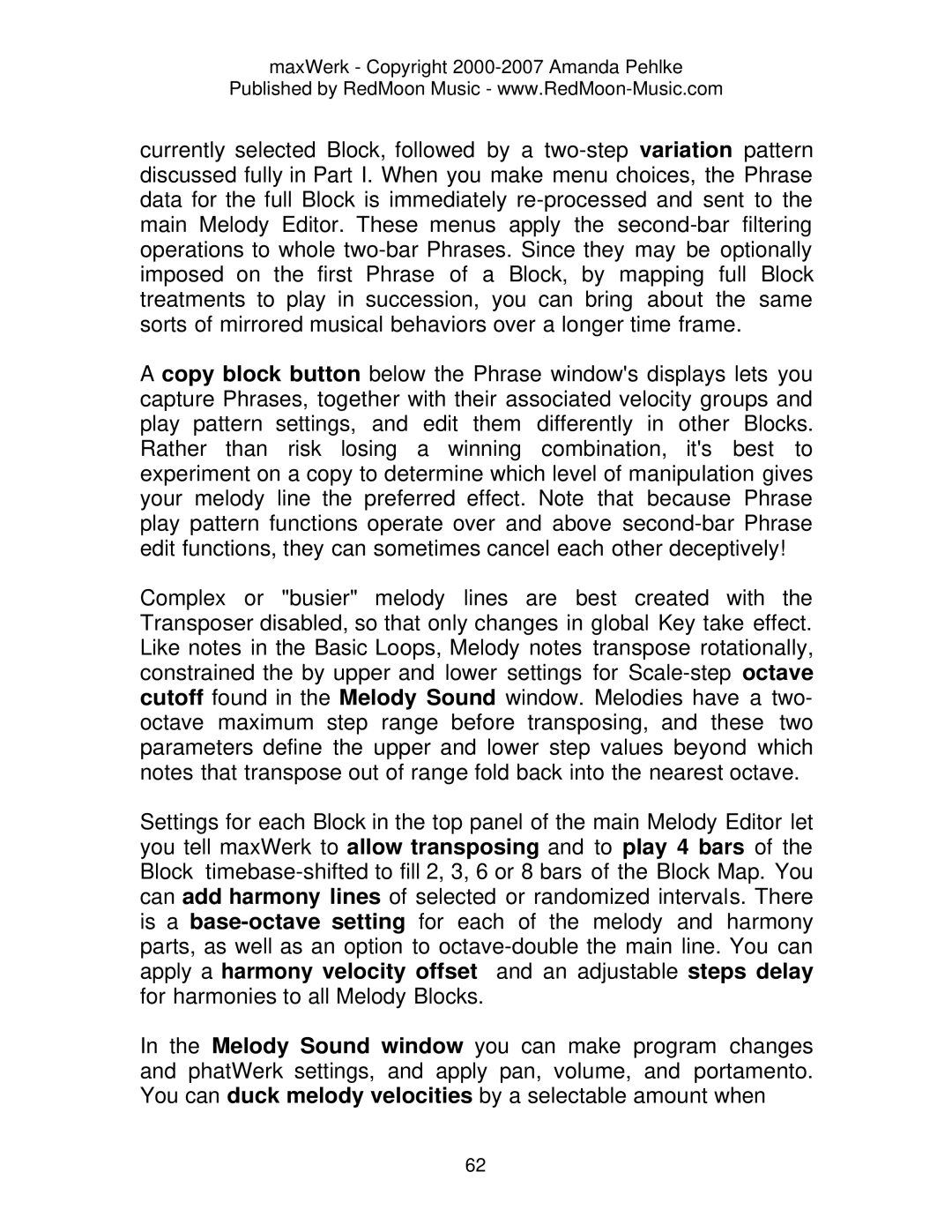maxWerk - Copyright 2000-2007 Amanda Pehlke
Published by RedMoon Music - www.RedMoon-Music.com
currently selected Block, followed by a two-step variation pattern discussed fully in Part I. When you make menu choices, the Phrase data for the full Block is immediately re-processed and sent to the main Melody Editor. These menus apply the second-bar filtering operations to whole two-bar Phrases. Since they may be optionally imposed on the first Phrase of a Block, by mapping full Block treatments to play in succession, you can bring about the same sorts of mirrored musical behaviors over a longer time frame.
A copy block button below the Phrase window's displays lets you capture Phrases, together with their associated velocity groups and play pattern settings, and edit them differently in other Blocks. Rather than risk losing a winning combination, it's best to experiment on a copy to determine which level of manipulation gives your melody line the preferred effect. Note that because Phrase play pattern functions operate over and above second-bar Phrase edit functions, they can sometimes cancel each other deceptively!
Complex or "busier" melody lines are best created with the Transposer disabled, so that only changes in global Key take effect. Like notes in the Basic Loops, Melody notes transpose rotationally, constrained the by upper and lower settings for Scale-step octave cutoff found in the Melody Sound window. Melodies have a two- octave maximum step range before transposing, and these two parameters define the upper and lower step values beyond which notes that transpose out of range fold back into the nearest octave.
Settings for each Block in the top panel of the main Melody Editor let you tell maxWerk to allow transposing and to play 4 bars of the Block timebase-shifted to fill 2, 3, 6 or 8 bars of the Block Map. You can add harmony lines of selected or randomized intervals. There is a base-octave setting for each of the melody and harmony parts, as well as an option to octave-double the main line. You can apply a harmony velocity offset and an adjustable steps delay for harmonies to all Melody Blocks.
In the Melody Sound window you can make program changes and phatWerk settings, and apply pan, volume, and portamento. You can duck melody velocities by a selectable amount when
